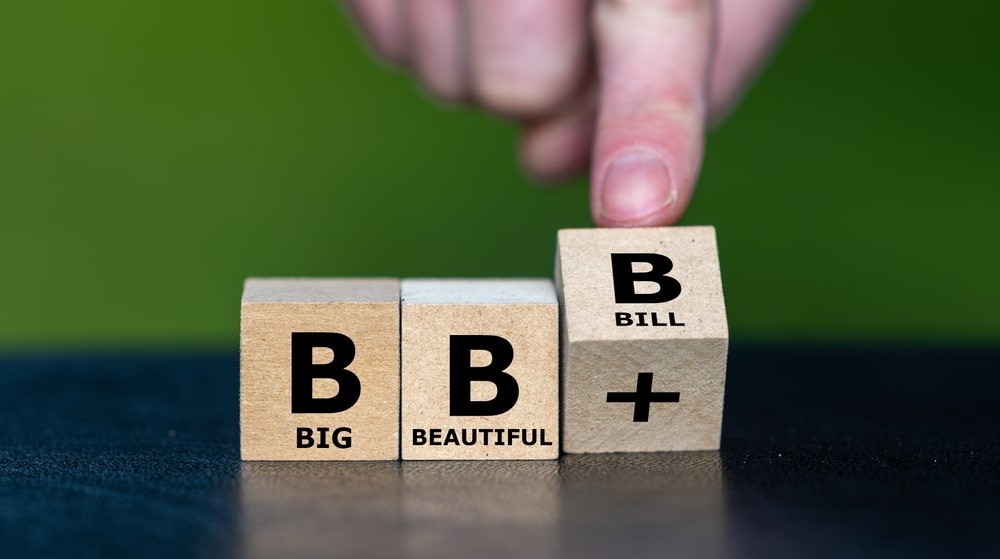
The passage of the Big Beautiful Bill (BBB) on July 4 is being hotly debated by politicians, entrepreneurs, medical organizations, and workers throughout the country. However, one thing is clear: the scope of the tax provisions in the legislation will have a significant impact on small businesses. Being aware of these critical changes will help owners determine how to navigate the financial and operational challenges they face on a daily basis. In addition to new tax provisions, the bill’s major provisions also include:
- Tax incentives for businesses with fewer than 50 employees
- Reduction in regulations for startups and small operations
- Labor laws revised to support flexible work arrangements
- Expanded funding for public-private partnerships
- Stricter environmental standards for supply chains and manufacturing
Tax Incentives: Businesses with fewer than 50 employees will receive significant tax breaks. This incentive can open opportunities to increase staffing, purchase new equipment, or update the operation.
Reduced regulation: One of the chief complaints of entrepreneurs is the massive amount of red tape required to launch a new business venture. The BBB streamlines licensing processes and simplifies compliance requirements. It’s anticipated that these changes will enable owners to transition from the concept stage to full operational status quickly.
Flexible labor laws: Many small businesses hire temporary workers in the Spring and holiday season. Other operations may employ workers who work remotely. These employers require flexibility to hire and retain talent for their specific operations. Seasonality and competition for skilled employees make it more challenging to build a dedicated team committed to the business.
Easier Access to Capital: By promoting private-public partnerships, the BBB aims to connect entrepreneurs with private investors and public grant opportunities. The intent is to spur innovation and growth in specific regions and industries with untapped potential.
Compliance with environmental standards: Stricter regulations requiring upgrades to equipment and changing supply chain practices to meet government standards will come with a price tag. While large companies may be able to absorb additional costs, compliance with the new standards could pose a financial hardship for small operations.
BBB Provisions Specifically Related to Taxes
The qualified business income (QBI) deduction was scheduled to expire at the end of the year. It is essential to businesses because it provides tax breaks of up to 20% for partnerships, sole proprietorships, S corporations, and LLCs. The Big Beautiful Bill makes the QBI deduction permanent, avoiding a sudden tax increase for small business owners.
Research and Development Expenses can be deducted immediately on tax returns. Previously, the cost of R&D expenses was written off over five years, instead of all at once. Small business owners said the delay caused problems with cash flow and unexpectedly higher tax bills. Businesses can now deduct the expenses in the year they occur. Additionally, some operations can revise earlier tax returns to claim the full credit. “This is a game-changer, significantly improving cash flow and enabling small businesses to invest more confidently in American talent and technology,” said Dave Hanson, a tax partner at Aprio, a business advisory firm in Atlanta.
Businesses can write off 100% of the cost of new, qualified, and eligible property acquired after January 19, 2025. This deduction covers equipment, software, and vehicles. Before the passage of the bill, the business depreciation, which began phasing out in 2022, was 40 percent for 2025. It will now be permanent. If $50,000 in equipment is purchased, the entire amount can be written off on your return, compared to $20,000 under the previous policy.
The expansion of Section 179 Deduction allows businesses to write off the total cost of certain assets up to a maximum dollar amount. The limit has been raised from $1.25 million to $2.5 million. Businesses can now spend more and get a larger benefit in the same tax year.
How BBB Changes Could Increase Costs
Higher national deficit: Adding $3 trillion to the deficit will increase interest rates. In commenting to NerdWallet, Heidi Pickman, vice president of engagement and external relations at CAMEO Network, a San Francisco-based entrepreneurial group, says, “The bill will likely exacerbate inflation and increase borrowing at a time when small businesses need affordable capital to navigate tariffs and other economic challenges.” Higher borrowing costs will limit the ability of businesses to grow and expand operations.
Healthcare Program Cuts: The Affordable Care Act Marketplace subsidies will expire at the end of the year. Many business owners and their employees may lose access to affordable healthcare coverage. Most operations have a limited budget and can’t absorb the cost of plans offered by the marketplace. Additionally, cuts to Medicaid could result in reduced access to healthcare for workers with lower incomes.
Be prepared for the new changes
To prepare your business for the upcoming changes resulting from the BBB, consult a tax professional. The person will help you understand how to fully utilize the tax benefits and make any adjustments to your existing strategy. Try different scenarios to determine the one that works best for your company.
Begin exploring healthcare options and group plans to ensure your team has adequate coverage. Health reimbursement arrangements (HRA) and community purchasing pools may be workable solutions.
Owners may also consider securing funding for working capital and equipment now rather than later to avoid higher interest rates. Being proactive will make adjusting to the BBB more manageable.




